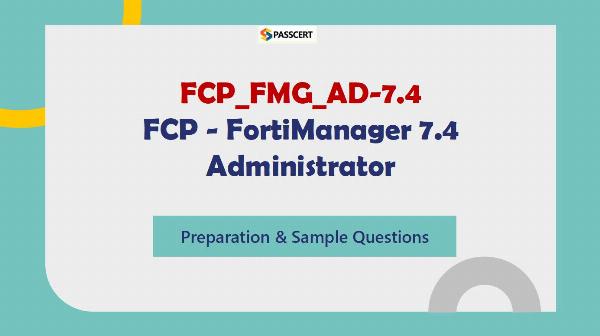Think Twice Before Saying These 15 Phrases Out Loud
 Yahoo is using AI to generate takeaways from this article. This means the info may not always match what's in the article. Reporting mistakes helps us improve the experience.Generate Key Takeaways
Yahoo is using AI to generate takeaways from this article. This means the info may not always match what's in the article. Reporting mistakes helps us improve the experience.Generate Key TakeawaysSome phrases sound harmless—until they land wrong. Whether it's a casual comment or a supposedly helpful observation, words carry emotional weight. Often, it’s not what we say, but what others hear underneath it.
These 15 phrases might seem socially acceptable, but they often reveal more than you realize—privilege, judgment, passive aggression, or a deep discomfort with vulnerability. Think of them as quiet emotional IEDs. Avoiding them doesn’t mean censoring yourself—it means communicating with more precision, empathy, and self-awareness.
1. “I Don’t See Color.”

While this phrase may seem like a well-intentioned declaration of equality, it actually erases identity. According to a study from Harvard Business School, colorblindness in workplace interactions often leads to more racial bias—not less—by avoiding meaningful discussions about race. Saying “I don’t see color” can come off as dismissive rather than inclusive.
AdvertisementAdvertisement#«R46e4kr8lb2m7nfddbH1» iframe AdvertisementAdvertisement#«R86e4kr8lb2m7nfddbH1» iframeTrue equity comes from recognizing differences and how they shape experiences. People want to be seen fully, not have key parts of their identity glossed over. Erasing race doesn’t foster unity—it delays the real work of justice.
2. “Why Are You Still Single?”
 friends eating lunch at outdoor cafe
friends eating lunch at outdoor cafeThis seemingly innocent question often carries an underlying assumption that being partnered is better. It can sound like a veiled judgment that someone’s relationship status is a flaw rather than a choice. It also reinforces the idea that romantic coupling is a life benchmark, which isn’t true for everyone.
Even if meant as a compliment, it implies there’s something puzzling about being happy alone. It may also put pressure on someone who doesn’t want to justify their life choices. Curiosity isn’t always harmless—it can sting when it’s rooted in outdated norms.
3. “I’m Just Being Honest.”

This phrase often signals that something blunt or unkind is about to follow. According to Dr. Harriet Lerner, author of *The Dance of Connection*, honesty without empathy is cruelty in disguise. “I’m just being honest” is often used to mask passive aggression or dodge responsibility.
AdvertisementAdvertisement#«R4fe4kr8lb2m7nfddbH1» iframe AdvertisementAdvertisement#«R8fe4kr8lb2m7nfddbH1» iframeIt puts the speaker’s need to unload above the listener’s right to be spoken to with care. Honesty doesn’t need a warning label if it’s truly meant to build trust. If you have to defend your words that way, they probably weren’t as thoughtful as you think.
4. “At Least You Aren’t Starving.”

Using suffering elsewhere to diminish someone’s current struggle isn’t compassion—it’s comparison. It doesn’t soothe; it silences. When people are hurting, they don’t need a reality check—they need to feel heard.
This phrase tells people their pain isn’t valid unless it’s the worst imaginable. It turns empathy into a contest no one asked to enter. You don’t need to solve someone’s problems to honor their experience.
5. “You’re Too Sensitive.”

Labeling someone “too sensitive” is a classic gaslighting move, according to psychologist Dr. Robin Stern, author of *The Gaslight Effect*. It flips the focus from your behavior to their reaction, instantly undermining their emotional reality. Instead of listening, you’re correcting them for how they feel.
AdvertisementAdvertisement#«R4oe4kr8lb2m7nfddbH1» iframe AdvertisementAdvertisement#«R8oe4kr8lb2m7nfddbH1» iframeIt’s not feedback—it’s dismissal. And once trust is broken by invalidation, it’s hard to repair. Sensitivity isn’t a flaw—it’s often a strength in relationships and communication.
6. “Everything Happens For A Reason.”
 couple arguing at chrismtas
couple arguing at chrismtasThis phrase can come off as a lazy spiritual bypass. It glosses over real pain in favor of a tidy philosophical comfort. Not everything is part of a grand plan—and saying so can feel like denying the messiness of life.
Pain doesn’t need a reason to be honored. People need empathy, not platitudes. Connection happens when you stay in the discomfort, not when you rationalize it away.
7. “It’s Just A Joke.”
 two colleagues gossiping at work desk
two colleagues gossiping at work deskSociolinguist Deborah Tannen has noted that humor can act as both connection and aggression depending on the power dynamics. “It’s just a joke” is often a deflection when humor lands in a hurtful way. Instead of reflecting on what was said, the speaker shifts blame to the listener for being “too serious.”
AdvertisementAdvertisement#«R51e4kr8lb2m7nfddbH1» iframe AdvertisementAdvertisement#«R91e4kr8lb2m7nfddbH1» iframeHumor isn’t harmless if it reinforces stereotypes or belittles others. If someone says they’re hurt, take that seriously. Good jokes don’t require damage control.
8. “You Look Tired.”
 Diverse employees chatting during coffee break, walking in modern office, Asian businesswoman wearing glasses sharing ideas, discussing project with colleague, having pleasant conversation
Diverse employees chatting during coffee break, walking in modern office, Asian businesswoman wearing glasses sharing ideas, discussing project with colleague, having pleasant conversationEven if meant with concern, this phrase rarely lands as caring. It unintentionally points out someone’s appearance in a way that may feel like a critique. “Tired” can be read as unpolished, less attractive, or underperforming—all things no one wants called out unsolicited.
Instead of guessing someone’s state, ask how they’re feeling or offer to help. Better yet, keep the focus on their well-being, not their face. Compassion is better received than commentary disguised as concern.
9. “That’s Not What I Meant.”
 emotionally unavailable guy
emotionally unavailable guyWhen you say this, you’re centering your intention over their interpretation—and that can be invalidating. Communication isn’t just about what you said, but how it landed. Dismissing their reaction misses the point entirely.
AdvertisementAdvertisement#«R5ae4kr8lb2m7nfddbH1» iframe AdvertisementAdvertisement#«R9ae4kr8lb2m7nfddbH1» iframeIt’s more constructive to ask, “How did that make you feel?” or “Can you tell me what you heard?” Acknowledging impact builds trust. Defending intent just builds walls.
10. “Calm Down.”
 Shot of a young couple having an intense argument at home. Furious couple arguing while having problems in their relationship.
Shot of a young couple having an intense argument at home. Furious couple arguing while having problems in their relationship.This phrase is a classic way to inflame rather than soothe. It implies the other person’s reaction is too big or inappropriate, which is rarely helpful mid-conflict. In fact, it often sounds like control, not care.
Telling someone to calm down doesn’t acknowledge their emotional experience—it shuts it down. If you want to de-escalate, try validating their frustration first. People can regulate when they feel seen, not scolded.
11. “You’re Overreacting.”
 conflict
conflictSaying this dismisses someone’s emotional reality and immediately puts them on the defensive. It’s a way to pathologize their feelings instead of understanding them. This doesn’t de-escalate—it intensifies the sense of being misunderstood.
AdvertisementAdvertisement#«R5je4kr8lb2m7nfddbH1» iframe AdvertisementAdvertisement#«R9je4kr8lb2m7nfddbH1» iframeA better route is curiosity: “Can you help me understand why this matters so much to you?” People rarely overreact without a backstory. Empathy invites connection; judgment invites distance.
12. “I’m Not Like Other People.”
 Conversation, argument and interracial couple in conflict in a park for communication about divorce. Angry, fight and black man and woman speaking about a relationship problem on a date in nature
Conversation, argument and interracial couple in conflict in a park for communication about divorce. Angry, fight and black man and woman speaking about a relationship problem on a date in natureThis phrase can sound like you’re placing yourself above others—even if you don’t mean to. It often reads as either insecurity or superiority, depending on the tone. People don’t need you to advertise your uniqueness—they’ll feel it through your actions.
Trying too hard to distinguish yourself can feel like a branding exercise, not authenticity. Let your values and presence speak. Real connection doesn’t require distancing from everyone else to be special.
13. “No Offense, But…”
 angry unhappy friends having public argument
angry unhappy friends having public argumentThis is a classic prelude to something offensive—it’s a rhetorical Trojan horse. It attempts to dodge accountability while delivering a jab. Most people hear this as a warning sign, not a softener.
AdvertisementAdvertisement#«R5se4kr8lb2m7nfddbH1» iframe AdvertisementAdvertisement#«R9se4kr8lb2m7nfddbH1» iframeIf you have to say “no offense,” it’s worth asking if the comment needs to be said at all. It doesn’t soften the impact; it signals that you expect pushback. Consider empathy before opinion-sharing—it’s a better bridge builder.
14. “Some People Just Can’t Be Helped.”

This phrase is usually more about our own limits than someone else’s potential. It can sound judgmental, final, and cold—especially if said about someone struggling. Instead of identifying someone as “hopeless,” it’s worth exploring where the disconnect or fatigue is coming from.
Compassion doesn’t mean fixing everyone—it means not giving up on their humanity. Maybe they’re not ready, or maybe they need something you can’t give. But writing people off rarely comes from wisdom—it often comes from burnout or bias.
15. “That’s Just How I Am.”

This phrase cuts off the possibility of growth and signals an unwillingness to reflect. It may feel like authenticity, but it often acts as a defense against accountability. If you use this line, ask yourself whether it’s true—or just comfortable.
We’re all works in progress, and claiming fixed traits ignores that truth. Real self-awareness includes the ability to adapt. If that’s just how you are, make sure it’s also who you want to be.














